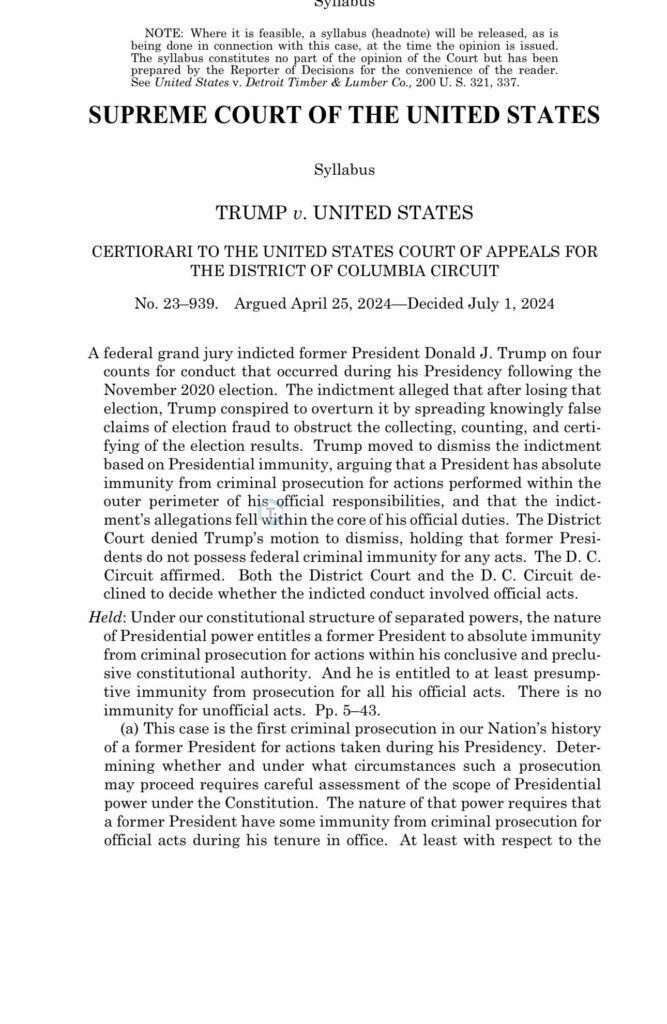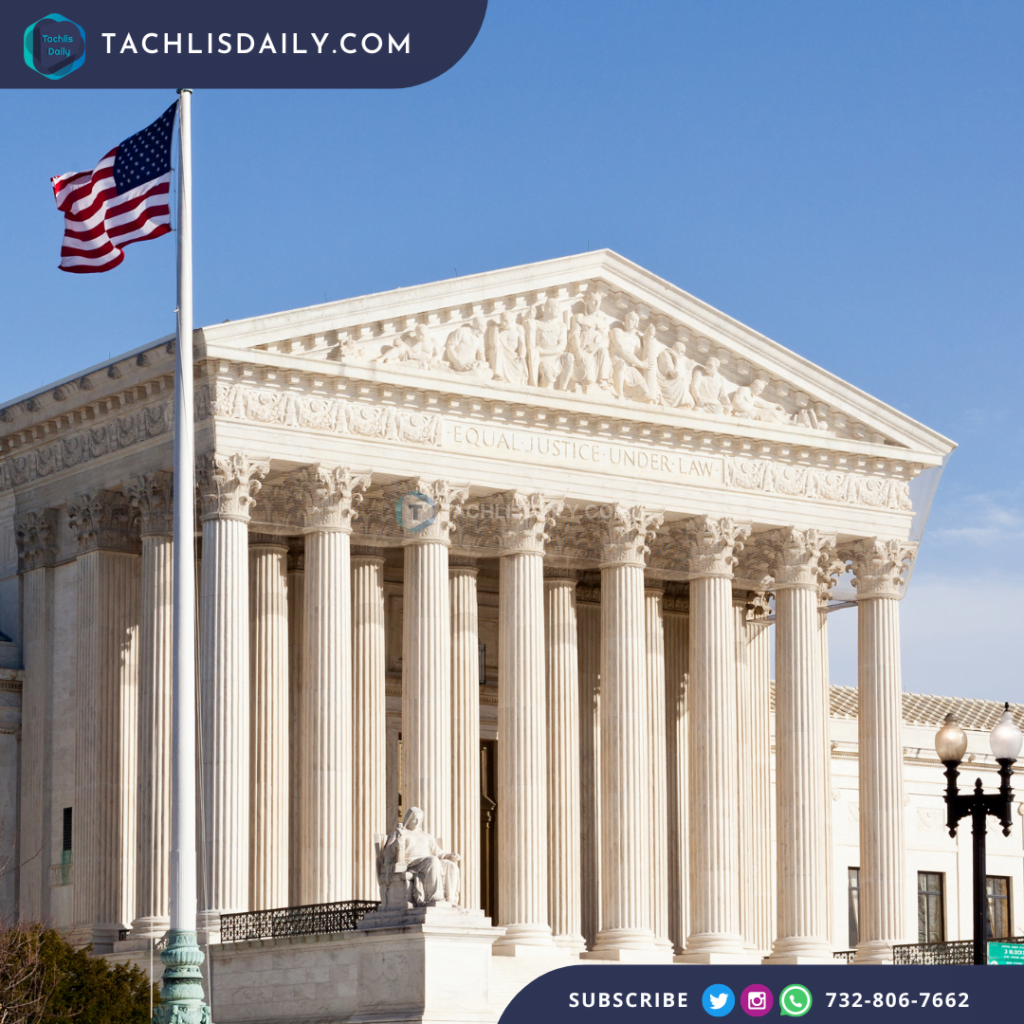The Supreme Court has ruled that former President Donald Trump is entitled to immunity from federal prosecution for official actions taken during his presidency. The 6-3 decision overturns a previous federal appeals court ruling and marks a significant expansion of presidential power, extending immunity to former presidents for their official conduct.
Chief Justice John Roberts, writing for the majority, divided presidential conduct into three categories: core constitutional powers, official acts outside exclusive authority, and unofficial acts. The ruling asserts that presidents have absolute immunity for the first category, presumptive immunity for the second, and no immunity for the third. Roberts emphasized that “the President is not above the law” but clarified that Congress cannot criminalize actions within the scope of presidential responsibilities.
This decision is likely to delay the criminal trial against Trump, accused of attempting to subvert the 2020 election results. The district court must now assess whether the alleged actions fall under the scope of immunity. The ruling also impacts other cases against Trump, including the mishandling of sensitive documents and attempts to overturn Georgia’s election results.
Trump, who has pleaded not guilty to all charges, sought to delay proceedings until after the upcoming presidential election, raising the potential for further legal and political ramifications. The Supreme Court’s decision underscores the complexity and unprecedented nature of prosecuting a former president, setting a precedent for future presidencies.












